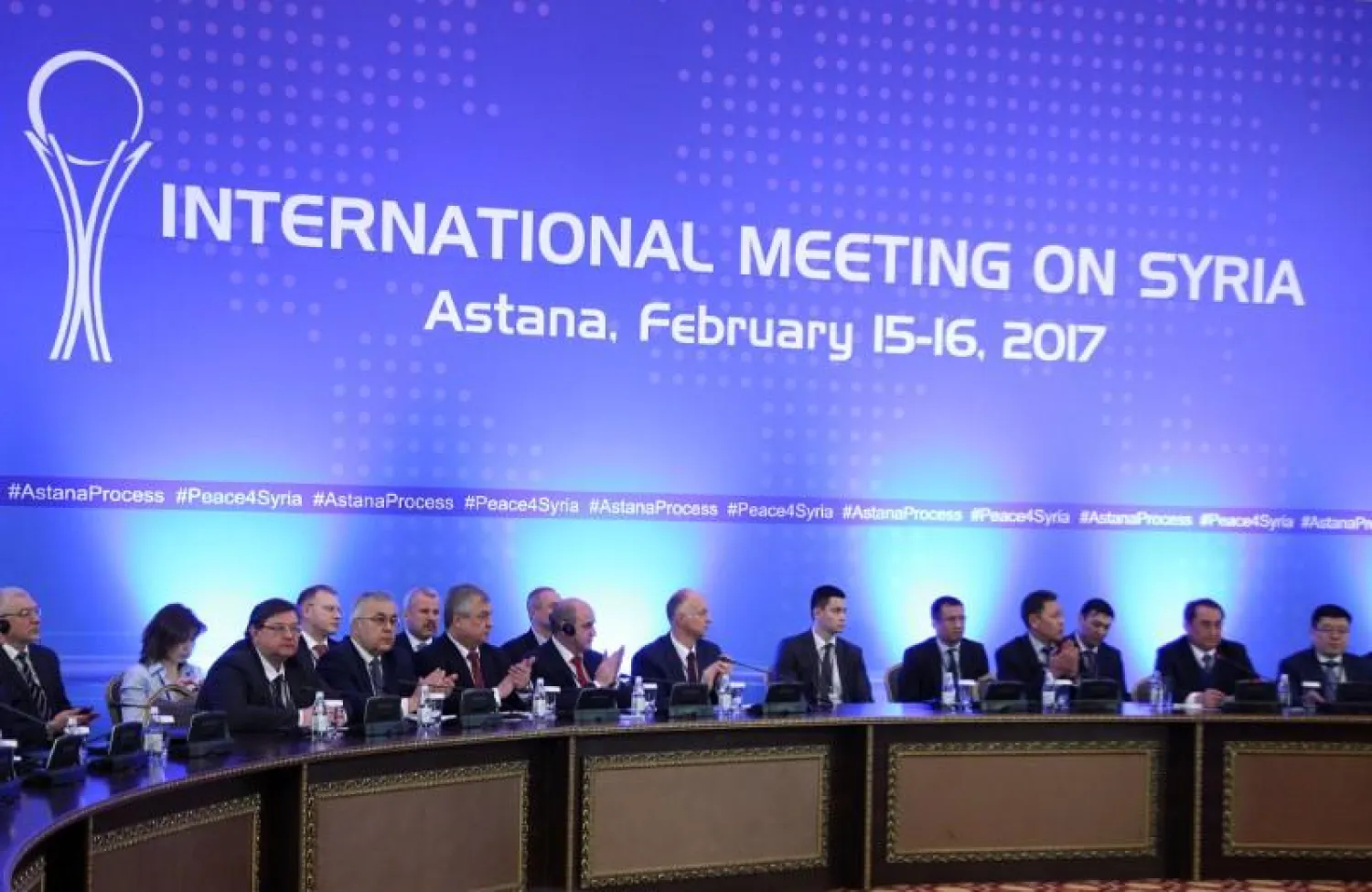The 8th round of consultations in Astana on the Syrian crisis will kick off on Thursday, with the participation of UN Special Envoy Staffan de Mistura and representatives of the United States and Jordan.
The Kazakh Foreign Ministry said that the delegations of the Guarantor States had confirmed their participation in the current round of consultations.
Sources expected that Astana 8 would see a shift from focusing on military files, which had been the main theme of the Astana process since its inception, to issues of a political settlement.
A source familiar with the preparations for the meeting told Asharq al-Awsat that the delegations of the guarantor states would review the situation and developments in the Syrian de-escalation zones, adding that talks would focus on countering terrorist groups, specifically Al-Nusra Front in Idlib, and the means to face terrorism in order to better prepare the atmosphere for the political process.
RIA Novosti, quoting sources with knowledge of the matter, said that states participating in Astana 8 would center their attention on the Syrian dialogue conference in Sochi, adding that participants were working on some of the issues proposed in Sochi, such as the constitution and the elections.
The sources noted that meeting would also review the situation in the de-escalation zone in Idlib, as the province is witnessing confrontations and is subject to aerial bombardment. The Syrian opposition and the Syrian Observatory for Human Rights (SOHR) held the Syrian regime and Russian forces responsible for the airstrikes.
SOHR reported on Tuesday that nineteen civilians, including seven children, were killed in heavy bombardment on Idlib.
“Suspected Russian airstrikes targeted several houses in Maarshurin,” said Rami Abdel Rahman, head of SOHR. He added that 13 members of a single family were among the dead.
Idlib’s civil defense, a rescue service known as the White Helmets which operates in rebel territory, said fierce bombing after midnight killed 19 people. The Observatory said 25 others had been injured.
There was no immediate comment from the Syrian regime forces. The Russian defense ministry later on Wednesday denied that its jets had carried out the strikes.
De Mistura is expected to arrive in Moscow on Thursday, where he will hold talks with Russian Foreign Minister Sergei Lavrov and Defense Minister Sergei Shoygu on the Syrian settlement.









